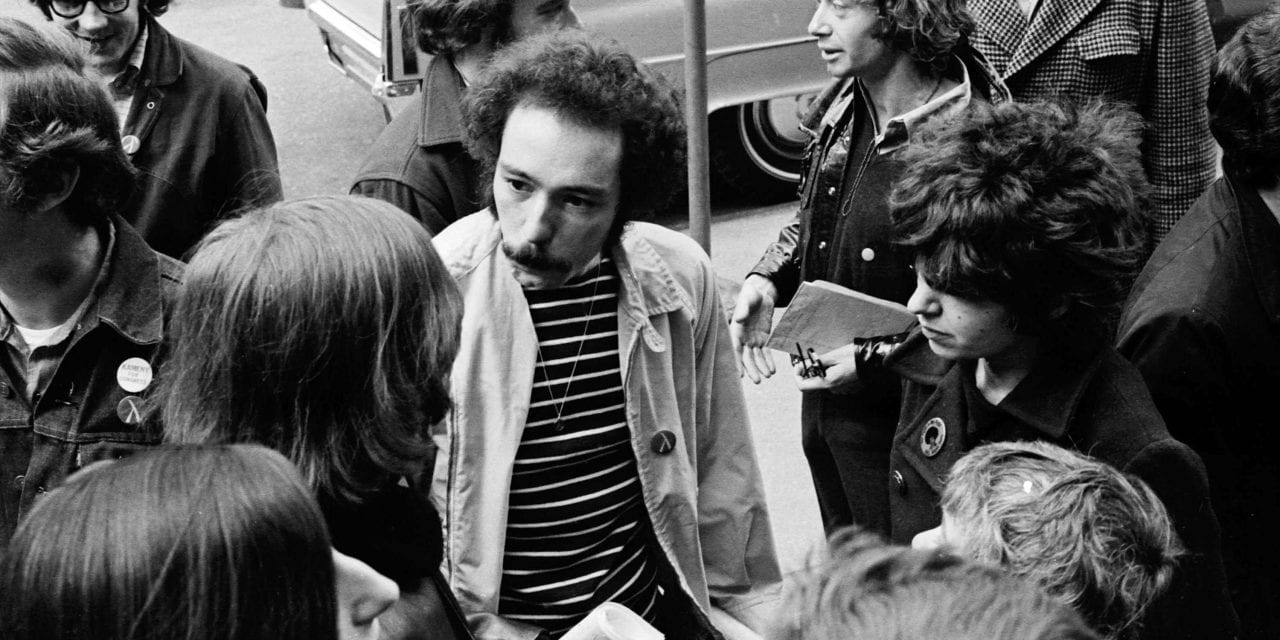With his new HBO doc on activist Vito Russo, Jeffrey Schwarz keeps queer history in the limelight
RICH LOPEZ | Staff Writer
In a San Francisco screening for his latest documentary Vito, a young man in full-on rainbow garb reminded director-producer Jeffrey Schwarz of his purpose. In a post-film discussion that, man, attending with his mother, told the crowd that he had just come out and had no idea who Vito Russo was. Other than rainbows, perhaps he didn’t know much more about gay Pride and history.
“’This is my first gay anything,’” Schwarz recalls the young man saying. “’And today, I have a new hero.’ That encapsulates why I did this and how resonant Vito is today. He showed that you live your life as you wish. And be fearless and be brave.”
While the documentary takes a chronological look at Russo’s life, the message isn’t just a biographical look at the man. As one of the first and perhaps the most prominent activist, Schwarz ponders what Russo could have done had he not succumbed to AIDS in 1990.
 “We could never know what effect he would have today, but also, look what he did in such a short time,” Schwarz says. “We take for granted how open we can be today. And young gay people, to be who they are, symbolize a true testament to him. I knew a time when it was almost impossible to be gay. Because of Vito, we’re much more empowered.”
“We could never know what effect he would have today, but also, look what he did in such a short time,” Schwarz says. “We take for granted how open we can be today. And young gay people, to be who they are, symbolize a true testament to him. I knew a time when it was almost impossible to be gay. Because of Vito, we’re much more empowered.”
What the documentary does is not only remind of Russo’s legacy, but introduces him to that younger generation. Gay history isn’t taught in most, if any, educational curriculum before college. But following Russo’s lead to chronicle the gay movement as he pushed for back in the days of Stonewall and the rise soon after, Schwartz’s intentions were similar.
“I would say most younger don’t know who he was and they don’t necessarily know the history,” he explains. “Making this was hopefully a corrective to that. I want to restore him to the pantheon of gay and lesbian heroes.”
By doing the film, Schwarz sees how the tone of activism has changed, and may have become a bit less vigilant. When Russo and his contemporaries started, the movie shows how the lack of examples divided gays, lesbians and trans more than solidified their common cause.
“There is a different tone activism now but I think we ought to be a lot more angry,” he says. “Gay kids are still killing themselves. We need to get in touch with that anger he had and people need to be held accountable. Cured therapy. Get in touch with that anger. I hope Vito can help channel that. We’ve made enormous gains but we really take it for granted the freedoms that we had.”
While the film has been on the festival circuit since October (it played in Dallas at the Dallas International Film Festival this past spring and at Q Cinema last month), Schwarz gives high praise to HBO for their attention to his documentary and overall attention to the community in general. As distributors of The Celluloid Closet, HBO already had a relationship with Russo’s work.
“We have to thank HBO for this because now millions of people are going to see,” he says. “It has been a thrill for me to work with them and not onlhy did they jump on board, they have proven to be incredible supporters of our community.”
Schwarz continues his work on gay icons with his next documentary and like Russo, hopes to expand the story of gay director John Waters’ most famous muse to a newer generation.
“Yes, I am working on I Am Divine and we’re in the process of editing now,” he beams. “She was the definitive poster child for misfit youth and another figure who has been significant in our culture. Like Vito, in her way, she was larger than life and these people are iconoclasts. How can we ever forget them?”
Vito premieres July 23 on HBO.














